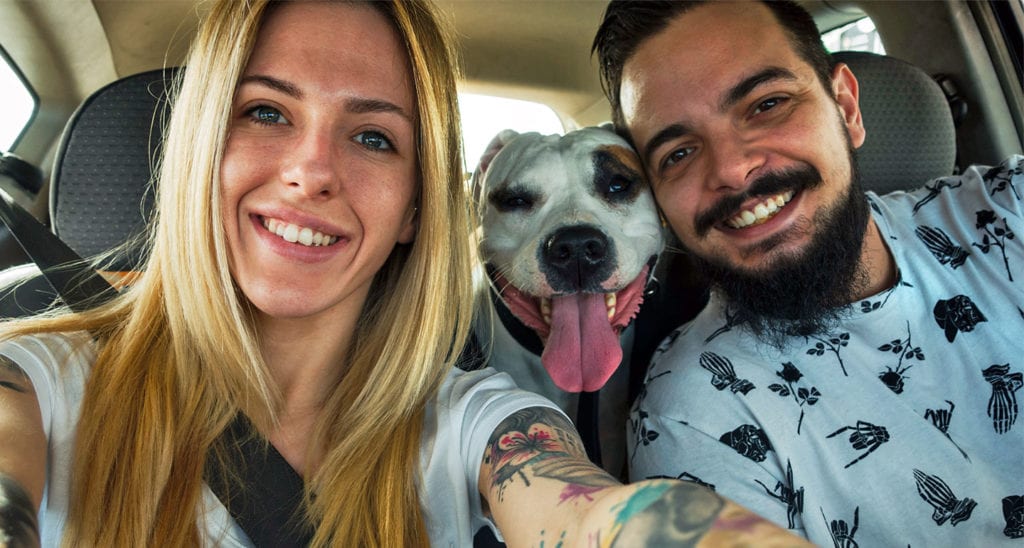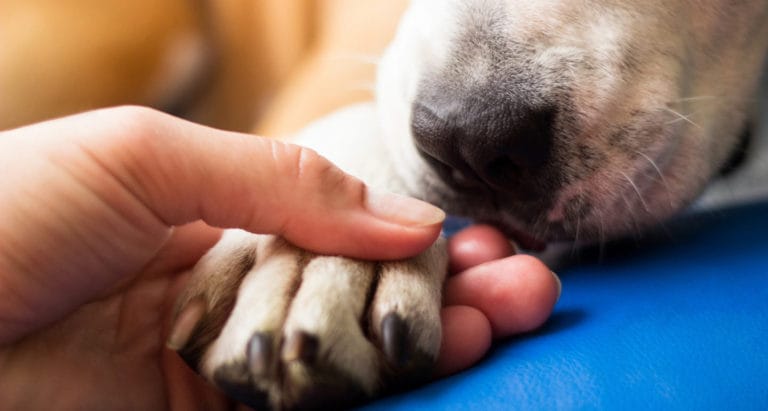Are you one of the many people who adopted a new cat or new dog during the coronavirus pandemic? If so, congrats! You’re amazing. Or maybe you’re thinking about getting a new puppy? (You should totally do it, provided you have the time and resources, of course!)
As responsible pet parents, there are certain things we need to do to ensure our new additions are happy and healthy. For example, they need vaccinations, proper socialization and training. But caring for your new pet, especially in those first few weeks, might be a little more complicated these days since many states and communities around the country are in various stages of reopening. Never fear. We are here to help you navigate these uncharted waters.
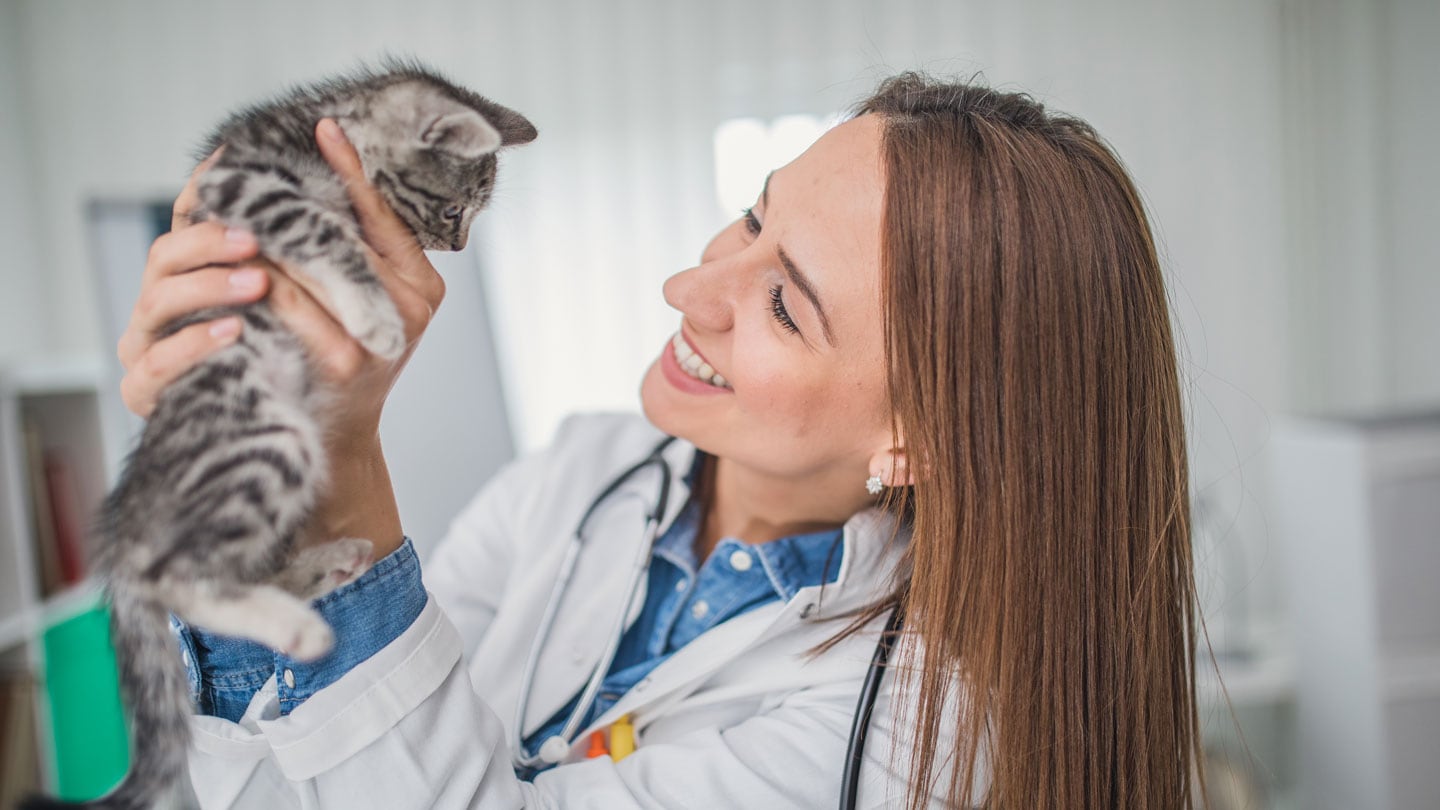
The First Vet Visit
One of the first things you should do after bringing home a new dog or cat is go to the vet for their first visit. Dr. Katy Nelson, Chewy’s resident veterinarian, refers to this first vet visit as “a big advice session.” It usually takes place within the first week of bringing home your fur baby, and it’s when you and your vet talk about everything under the sun to make sure they start life in their new home off on the right paw. That discussion likely will cover vaccines, diet, flea and tick control, spay or neuter surgeries, socialization, and training.
“There’s typically a lot of paperwork and questions and getting established,” Dr. Katy says.
The challenge right now, though, is that you may not be able to talk to your vet face to face. But that doesn’t mean you should skip this crucial appointment.
Many veterinary practices are doing curbside pick-up and drop-off in which staff will come out to pick up your pet, and then you wait in your car while your pet is examined. Dr. Nelson suggests contacting your vet’s office ahead of time and asking if a FaceTime or some other video session with your veterinarian could be scheduled during your appointment.
Another option, she says, is to drop off a packet prior to your appointment that includes all of your questions, your pet’s background, and what type of lifestyle you and your pet will have. That way, your vet can refer to it during the appointment and follow up with you later on the phone.
Now you might be wondering why it’s so important to provide details of your lifestyle—for example, if you work a full time job and your new puppy will be home alone for most of the day, or if you are very active and plan to go on runs with your new dog, or if live in a rural setting and your pet will be spending a lot of time outdoors. That could affect what vaccines your vet might recommend (outside of the core vaccines), what type of diet they recommend, or the type of flea or tick treatment.
“[Veterinarians] really need to know the lifestyle of that dog and those parents in order to make the best recommendations,” Dr. Nelson says.
So again, lots to go over in this initial visit and communication with your vet is key.
“Really try to find a creative way to get all of your questions in there and make sure that you have the answers,” she says.
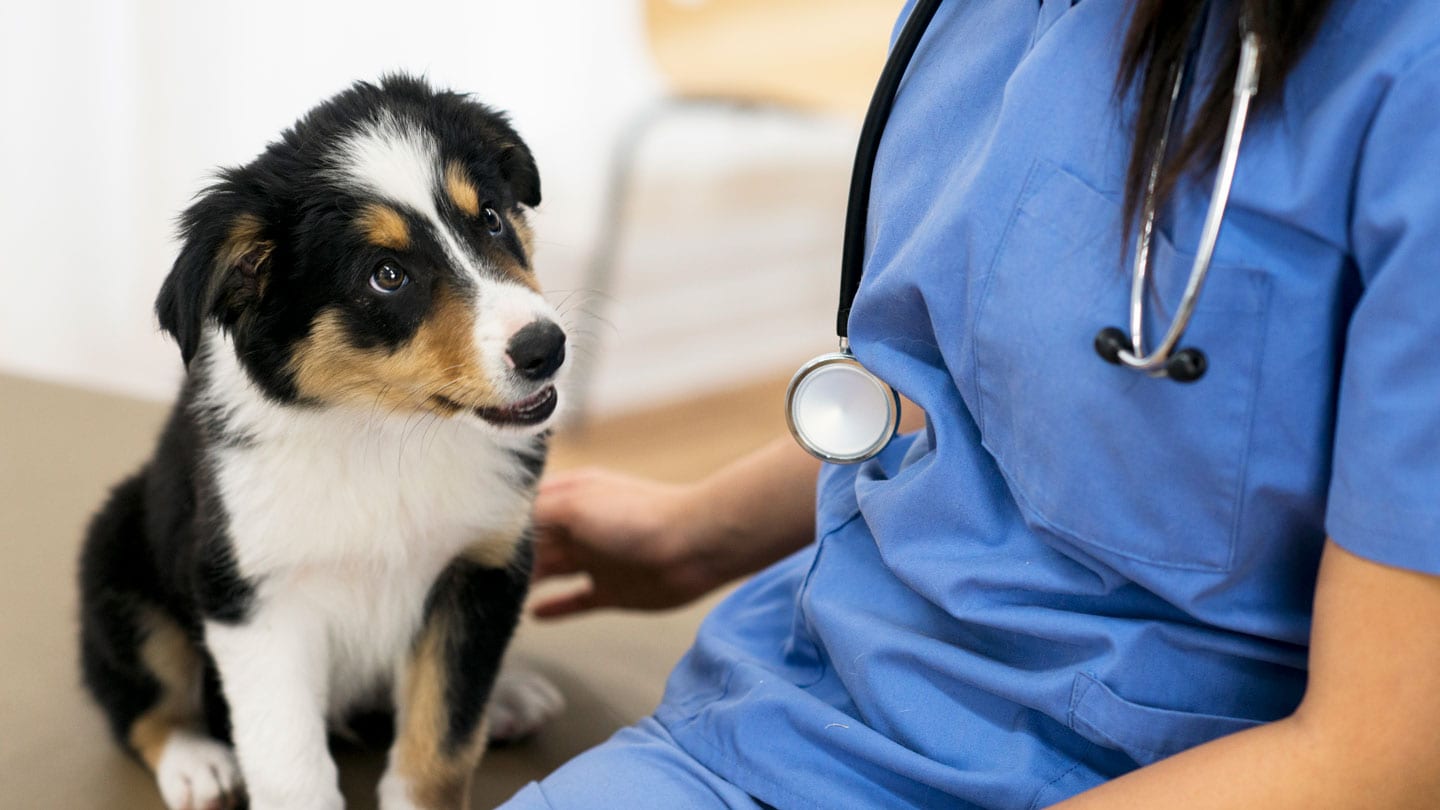
Scheduling Vaccines
If you have a new puppy or kitten, they’re most likely going to need vaccines and those are given on a pretty set schedule. You shouldn’t skip those appointments, either, Dr. Nelson advises.
“Puppy and kitten vaccines are considered essential,” she says. “Building their immune system is essential and protecting them from viruses in the environment is essential.”
Puppies and kittens should start receiving core and any necessary noncore vaccinations when they are around 8 weeks old. Afterward, booster shots usually are given at 3- to 4-week intervals until they are 16-20 weeks old.
Core vaccines for puppies include distemper, hepatitis, parainfluenza and parvovirus (usually given together in a combination vaccine called DHPP), and rabies. Core vaccines for kittens include feline viral rhinotracheitis, calicivirus, and panleukopenia (usually given together in a combination vaccine called FVRCP), and rabies.
Older pets may also need vaccines. For example, if you have a dog who is a social butterfly and loves going to the dog park or on play dates, then a kennel cough vaccine may be recommended.
“If you have an older pet, go through their vaccine history just to make sure they’ve got everything they need—and that fits your lifestyle,” Dr. Nelson says.
This usually is addressed during that initial vet visit. Again, you’ll want to make sure have that initial visit and get your new pet set up on a vaccine schedule—even though you may not be able to be in the office with your pet.
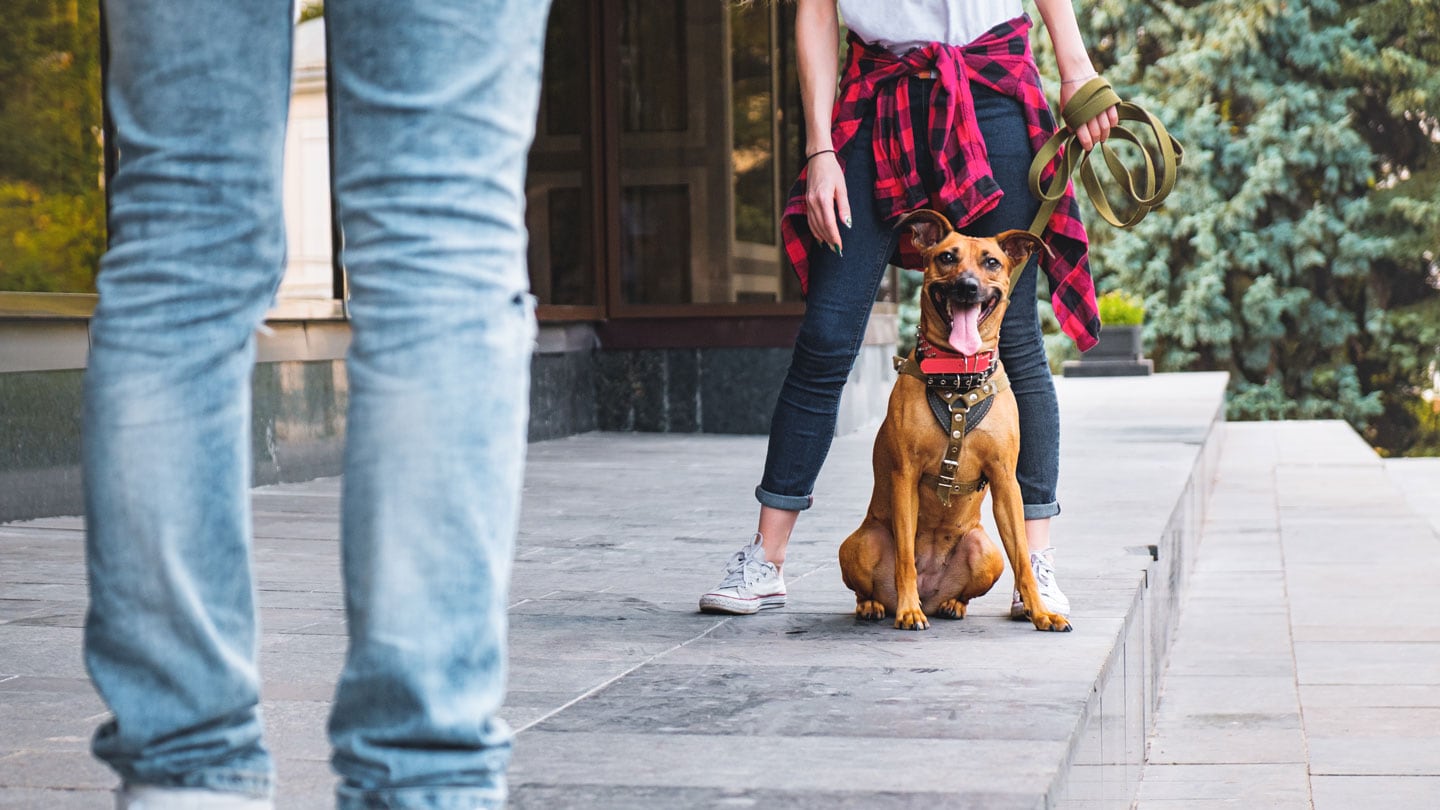
Providing Proper Socialization
Most puppies and kittens go to their new homes right around peak socialization time. For puppies, that peak socialization period is between 8-16 weeks old, according to Victoria Schade, a certified dog trainer. For kittens, she says it’s best if they are socialized before 9 weeks of age. And socialization doesn’t just mean being social and having your puppy or kitten hanging out with other people and pets, although that is part of it.
“Socialization is the process of gently and safely introducing pets to novel sights, sounds, scenarios and people,” Schade says. “The goal is that all of the socialization situations are positive, and happen at the pet’s pace, not the pet parent's.”
So why is it so important? Proper socialization, she explains, helps build confidence, which in turn contributes to a well-rounded adult dog or cat. Even though it might not be possible to have people or other pets come over right now, you still can find ways to socialize your new charge.
Here are a few options from Schade (and don’t forget to bring along treats to reward your pet for good behavior!):
- Bring your puppy to new environments where it’s possible to main social distancing and let them watch the world go by.
- Go on short car rides to get your new cat or dog used to the sights, sounds and experience of being in a moving car.
- Introduce them to new surfaces, like sand, pavement and trails.
- Help them feel comfortable around loud noises like sirens and cars.
- Watch other dogs from a distance.
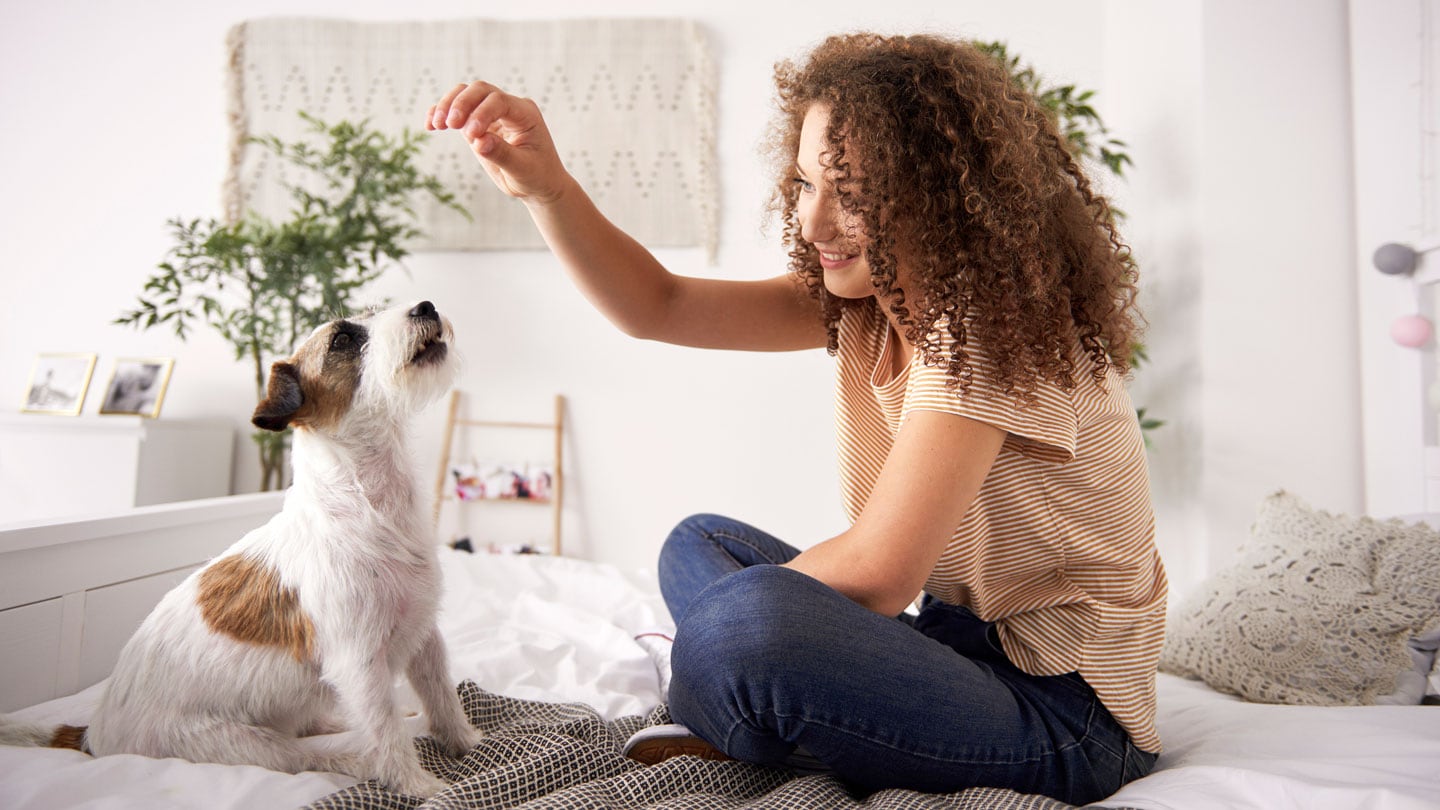
Time for Training
Bringing a new pet home means teaching them the rules of the house. For puppies and some older dogs, that might also mean obedience training with a 1-to-1 instructor or a training class. Attending classes or 1-to-1 instruction sessions might not be possible right now, but you don’t want to skip this important period for training, because it’s setting the foundation for future good behavior.
“Rather than trying to revise [bad] behaviors later, it’s better to try to prevent those behaviors from forming now by being proactive,” Dr. Nelson says.
OK, so what do you do if you can’t physically go to a training class? A lot of trainers are doing virtual trainings session right now.
“While the set-up has its drawbacks—for example, the trainer can't kiss their students!— it's still a good way for pet parents to begin working on the foundation behaviors and have their pressing questions answered, like potty training and teething info,” Schade says.
In some cases, it might possible to do 1-to-1 training session outdoors while still practicing social distancing. There are also apps you can use and instructional videos. No matter which route you take, Schade warns against any training that suggests physical discipline “like swatting, pining, ‘bopping’ or otherwise putting your hands on your puppy as a means to ‘correct’ behavior.” Instead, look for certified trainers who practice positive reinforcement.
Dr. Nelson also suggests trying to get your new pet used to what life will be like on the other side of this pandemic. So, for example, if you usually work a 9-5 job outside of the home and won’t be home during the day to take your dog out for as many potty breaks, she suggests you get in the habit now of providing potty breaks according to what would be your normal schedule once you return to work. The idea is to get your dog used to that routine so they will have a smooth transition to the new new normal.
That might even mean contacting a dog walker now so that that you can have someone lined up for when you do return to work, she says. Or, you might even be able to start the proves—using proper safety precautions, of course!
The coronavirus pandemic might have made some things more difficult for new pet parents, but rest assured, you can still give your new cat or dog the care they need—you’re just going to have to get creative. The joy and love that you’ll experience welcoming a new pet into your life will be well worth it.
Share:
